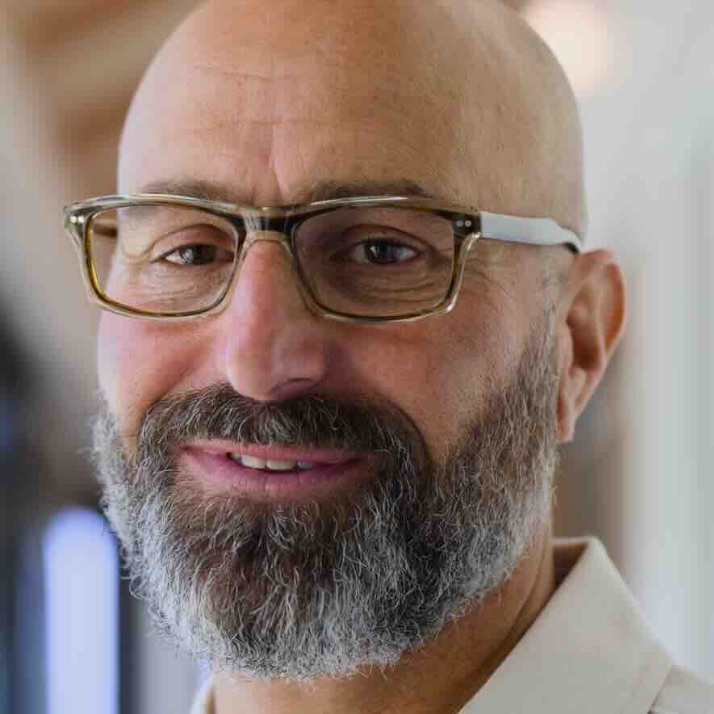Understanding the Basics of Gambling Addiction
Gambling Addiction means risking money or something valuable on a game or event where the outcome is mostly up to chance, like slots, sports bets, lotteries, card games, or online casinos. It can feel exciting because of the possibility of a win, but the odds usually favor the house. Common traits include unpredictable outcomes, quick cycles of wins and losses, and the urge to keep playing to chase a feeling or recover money. People may find themselves spending more time and money than planned, feeling stressed or secretive about their gambling, or needing bigger bets to get the same thrill. Understanding these basics can help you notice patterns early.
Awareness matters because it helps you make informed choices, set personal limits, and protect your finances, relationships, and mental well-being. In a busy place like Orlando, with many entertainment options and easy online access, gambling opportunities can pop up often and feel normal. Knowing the signs—like chasing losses, hiding gambling, or feeling anxious when not playing—can prompt a timely check-in. If you’re concerned, talking to someone you trust and considering local support can make a big difference. You deserve clarity and support as you decide what’s right for you.
Who Can Experience Gambling Addiction
Gambling Addiction can affect anyone, regardless of age, gender, culture, income, or background, and needing support is normal. Some groups may experience it more often, including people with high stress, trauma, financial strain, co-occurring mental health or substance use concerns, those with easy access to gambling, athletes, and military/veteran communities. Men are statistically more likely to report gambling problems, but women, teens, and older adults are also affected and deserve the same understanding and care. You are not alone, and help is available without judgment.
Signs You Might Notice
It’s common to wonder if what you’re experiencing could be related to Gambling Addiction, and noticing early signs is a strong first step. You’re not alone—many people in Orlando face similar challenges and find support that works for them. If any of the signs below feel familiar, consider reaching out for help that fits your needs.
- Thinking about gambling a lot, planning the next bet, or reliving past wins
- Needing to bet more money over time to feel the same excitement
- Feeling restless, irritable, or stressed when trying to cut back or stop
- Chasing losses by betting again to “win it back”
- Hiding gambling from loved ones or feeling guilty about it
- Financial strain, borrowing money, or missing bills because of gambling
- Strained relationships, work, or school problems tied to gambling
Factors That Contribute to Gambling Addiction
Gambling Addiction can affect anyone. If you’re struggling, it doesn’t mean you’re weak or at fault—many factors outside your control can play a role. Understanding these influences can help you take the next step toward support.
- Biological
- Family history or genetics
- Brain chemistry differences (e.g., dopamine reward sensitivity)
- Co-occurring conditions like ADHD or Bipolar Disorder
- Psychological
- Stress, anxiety, or depression as coping triggers
- Impulsivity or sensation-seeking traits
- Unhelpful beliefs (e.g., “a big win will fix things,” near-miss thinking)
- Environmental
- Easy access to betting apps, casinos, or lotteries
- Social norms or peer pressure around gambling
- Financial strain, job loss, or major life changes
The Impact of Gambling Addiction on Daily Living
If gambling is starting to feel like it’s crowding out the parts of life that matter, you’re not alone. Many people in Orlando struggle with similar challenges, and support is available. Small steps can help you regain balance and feel more in control day to day.
- Work and career: Missing shifts, being distracted on the job, or feeling pressure in hospitality, tourism, or service roles common around the attractions
- School and learning: Skipping classes at UCF or Valencia, falling behind on assignments, or losing focus during study time
- Relationships and family: Pulling away from loved ones, more arguments, or hiding time and spending from partners or friends
- Finances and bills: Struggling with rent, utilities, or transportation costs; using credit cards or loans to cover losses
- Physical health and sleep: Headaches, stomach issues, poor nutrition, or late nights that leave you exhausted the next day
- Emotional well-being: Anxiety, guilt, low mood, or irritability that makes it hard to enjoy everyday life
- Daily routines and community life: Canceling plans, skipping favorite Orlando activities, or avoiding places and people to hide gambling habits
Proven Paths to Recovery
Recovery is possible. Many people find steady relief by combining proven treatments with caring support. You deserve help that works, at your pace.
- Cognitive Behavioral Therapy (CBT): Builds practical skills to manage urges, change unhelpful thoughts, and create safer routines that reduce Gambling Addiction.
- Motivational Interviewing (MI) or Motivational Enhancement Therapy (MET): Strengthens your own reasons for change and helps set realistic, achievable goals.
- Medication (e.g., naltrexone): Can reduce cravings and the “rush” to gamble; a clinician can help decide if this is a good fit for you.
- Support groups (Gamblers Anonymous, SMART Recovery): Offer peer support, accountability, and tools for staying on track between appointments.
- Financial counseling and self-exclusion: Puts safeguards in place—budgeting help, debt plans, and voluntary bans from gambling venues and apps.
- Mindfulness-based relapse prevention: Teaches ways to ride out urges, manage stress, and build healthier habits that protect your recovery.
Beginning Your Journey with Gambling Addiction Therapy
Beginning your journey often starts by noticing patterns—spending more than you planned, hiding losses, chasing bets, or feeling anxious about money. When you’re ready, use MiResource’s directory to research providers who specialize in Gambling Addiction concerns. Filter by therapy approach (CBT, motivational interviewing), your insurance, real-time availability, preferred language, and Orlando neighborhoods like Downtown/Thornton Park, College Park, Baldwin Park, Mills 50, Lake Nona, or Dr. Phillips. Consider commute and transit: SunRail stops through Downtown, LYNX bus routes and the free LYMMO circulator can make midday sessions easier, while I‑4 and SR 408 traffic might push you toward telehealth or evening appointments closer to home.
Compare a few options by reading bios, checking experience with Gambling Addiction disorder, and noting openings that fit your schedule. Book a first session and set simple goals—reducing urges, creating a budget, or planning alternative activities for high-risk times (paydays, game days). Before you leave that first appointment, schedule follow-ups and ask about between-session support (homework, check-ins). If your needs change, return to MiResource to adjust filters—for example, switching to a bilingual provider in the Milk District or a weekend slot near UCF/East Orlando.
Community-Based Resources for Gambling Addiction in Orlando
Orlando offers a strong network of community-based support to help you manage Gambling Addiction challenges alongside care you’ll find in MiResource’s therapist directory—whether you’re near Lake Eola in Downtown, in Parramore, East Orlando by UCF, or around Winter Park and Pine Hills, these organizations provide helplines, peer groups, and counseling that meet you where you are.
- Florida Council on Compulsive Gambling (888-ADMIT-IT): 24/7 confidential helpline, text, and chat connecting Orlando residents to local treatment, financial counseling, and recovery supports.
- Gamblers Anonymous – Central Florida: Peer-led meetings across the metro (Downtown/Lake Eola, East Orlando/UCF, Winter Park) for those seeking abstinence and community.
- Gam-Anon – Metro Orlando: Support groups for family and friends affected by Gambling Addiction, with meetings in Winter Park and South Orlando/SoDo.
- Aspire Health Partners (1800 Mercy Dr., near Pine Hills): Outpatient behavioral health with screening and counseling for problem gambling and co-occurring issues.
- Orlando VA Medical Center (Lake Nona): Addiction and behavioral health services, including help for Gambling Addiction disorder, for eligible veterans and families.
If Gambling Addiction urges or related stress feel overwhelming in Orlando, immediate support is available 24/7. If you’re in danger or think you might harm yourself or others, call 911 or go to an emergency room now. For real-time emotional support, call or text 988. For Gambling Addiction-specific help in Florida, call 888-ADMIT-IT (888-236-4848). You can also contact 2-1-1 (Heart of Florida United Way) to connect with local crisis services and mobile response teams. Nearby ERs include Orlando Health ORMC (321-841-5111, 52 W Underwood St) and AdventHealth Orlando (407-303-5600, 601 E Rollins St).
- If there is immediate danger or a medical emergency, call 911 or go to the nearest ER: Orlando Health ORMC (321-841-5111) or AdventHealth Orlando (407-303-5600).
- For 24/7 emotional support, call or text 988 (Suicide & Crisis Lifeline).
- For urgent Gambling Addiction-specific help in Florida, call 888-ADMIT-IT (888-236-4848) or visit gamblinghelp.org for chat/text options.
- For local crisis response and mobile teams in Orlando/Orange County, call 2-1-1 or 407-839-4357 (Heart of Florida United Way) to be connected to the area’s Mobile Response Team or nearest crisis services; you can also contact Aspire Health Partners Crisis Services at 407-875-3700.
Nature and Well-Being in Orlando
Spending time in Orlando’s green spaces can offer a calming reset, helping reduce stress and cravings while you build healthier routines when managing Gambling Addiction. Gentle movement and fresh air can improve mood, sleep, and focus, making it easier to stay present and grounded. Even short, mindful walks create a buffer between you and urges, and repeating these outings can reinforce positive habits.
1) Start with a mindful lap around Lake Eola Park, focusing on your breath and the swans to ease tension. 2) Explore the shaded trails at Mead Botanical Garden for a quiet reset and a longer, unhurried stroll. 3) Walk or bike a segment of the Orlando Urban Trail to channel energy into steady movement and clear thinking. 4) Visit Tibet-Butler Nature Preserve for pine flatwoods and boardwalks where you can pause, journal, or reflect in a peaceful setting.
Questions People Often Ask About Gambling Addiction
1. How do I know if I need professional help for Gambling Addiction?
If gambling is making it hard to concentrate at work or school, causing you to pull back from friends or family, or keeping you stuck in persistent worry, it may be time to seek professional support. You might notice changes in sleep or appetite, feeling on edge, or spending more time and money than you planned despite trying to cut back. These are common signs that therapy and support groups can help you regain control and reduce stress. Consider scheduling a confidential assessment with a counselor to explore options and create a plan that fits your life.
2. What’s the first session of Gambling Addiction therapy like?
In your first Gambling Addiction therapy session, you’ll start with introductions and a brief overview of how sessions work. You’ll share your personal history with gambling, including when it started, triggers, and any patterns or urges that affect your daily life, finances, relationships, or mood. Together, you and the therapist will discuss your current concerns and any symptoms like cravings, preoccupation, or chasing losses. You’ll then set clear, achievable goals for treatment and outline next steps so you know what to expect moving forward.
3. Are there lifestyle changes that can help with Gambling Addiction?
Yes—many people find lifestyle changes can help reduce gambling urges and support recovery. Regular exercise lowers stress and boosts mood, making it easier to ride out cravings, while consistent, quality sleep improves impulse control and decision-making. Balanced nutrition stabilizes energy and mood, reducing emotional triggers that can lead to betting, and mindfulness practices (like meditation or breathing exercises) help you notice urges early and choose a different response. These self-care strategies work best alongside professional therapy or support groups, reinforcing the skills you’re building.
4. Can Gambling Addiction affect physical health too?
Yes—Gambling Addiction can affect physical health. The stress and adrenaline spikes can lead to headaches, muscle tension, stomach issues, sleep problems, fatigue, and even elevated blood pressure. Because of the strong mind-body connection, ongoing worry and shame keep the body in “fight-or-flight,” which shows up as physical symptoms. Addressing Gambling Addiction in therapy often reduces stress, improves sleep and energy, and supports overall physical well-being.













